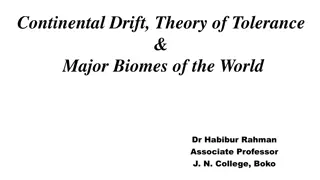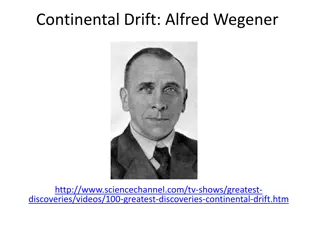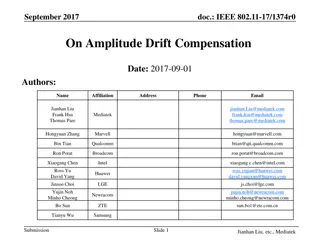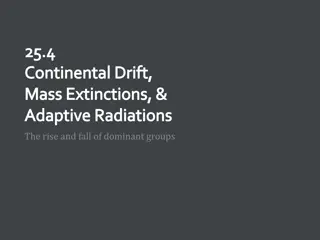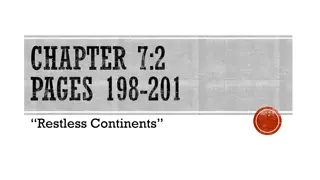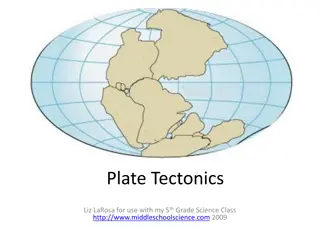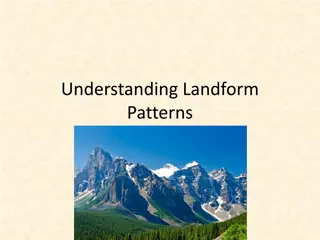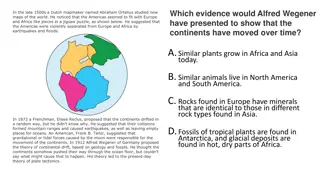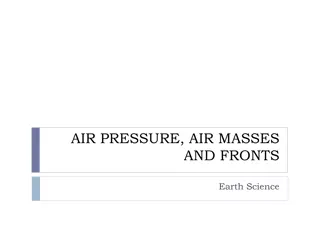The Theory of Continental Drift and Wegener's Evidence Explained
The Theory of Continental Drift proposes that continents were once part of a single landmass known as Pangaea, which eventually broke apart and drifted to their current positions. Alfred Wegener provided evidence supporting this theory, including the fit of continents like puzzle pieces, fossil similarities across coastlines, matching mountain ranges, glacier patterns, rock types, and climate data. Despite initial skepticism due to a lack of a mechanism, Wegener's observations laid the foundation for our understanding of Earth's geological history.
Download Presentation

Please find below an Image/Link to download the presentation.
The content on the website is provided AS IS for your information and personal use only. It may not be sold, licensed, or shared on other websites without obtaining consent from the author. Download presentation by click this link. If you encounter any issues during the download, it is possible that the publisher has removed the file from their server.
E N D
Presentation Transcript
ALFRED WEGENER THEORY OF CONTINENTAL DRIFT Found evidence for PANGAEA and proposed the theory of continental drift.
Continental Drift Theory Theory that continents were once part of a single landmass 200 million years ago that broke apart and have moved to their present locations. can drift apart from one another and have done so in the past Theory was not accepted by scientists because he had no force (mechanism) that pushes and pulls the continents
Pangaea Pangaea is the name given to the single landmass that was present 200 million years ago
Wegeners 6 Evidences 1) Fit of the Continents 2) Fossils 3) Mountains 4) Glaciers 5) Rock Types and Ages 6) Climate
EVIDENCE #1 FIT OF CONTINENTS Continents fit together like puzzle pieces
EVIDENCE #1 FIT OF CONTINENTS The Fit between Africa and South America
EVIDENCE #2 FOSSILS Fossil Evidence fossils are remains of living things that lived long ago. similar fossils have been discovered in matching coastlines on different continents.
EVIDENCE #3 MOUNTAINS Mountains Some mountain ranges on different continents seem to match. Ex: ranges in Canada match Norway and Sweden Ex: Appalachian Mtn. match UK mtn
EVIDENCE #4 GLACIERS Glaciers in areas that are now close to the Equator
EVIDENCE #4 GLACIERS Grooves carved by glaciers were found on many continents.
EVIDENCE #5 ROCK AGE AND TYPE
EVIDENCE #6 CLIMATE Wegener looked at certain areas on the Earth and their climates Noted that the fossils he found on certain sections of Earth did not match the current climate. Fossils of tropical plants in the form of coal deposits in Antarctica Glacier deposits in present day desert like areas in Africa
EVIDENCE #6 CLIMATE Such as: Coal deposits in Antarctica
Evidence of Continental Drift Satellites used to measure the movement of continents Laser Geodynamics Satellite (LAGEOS)
All this evidence points to a Supercontinent.
The Theory of Continental Drift had a fatal weakness. Wegener couldn't answer the fundamental question: What kind of forces could be strong enough to move such large masses of solid rock over such great distances?
He said: The continents simply plowed through the ocean floor !!!
Wegener's theory was dismissed as being eccentric, preposterous, and improbable Wegener died in 1930 never knowing that his theory was finally accepted by most scientists. Technology developed during the 1940 s changed all that!
The Plates Move So what now? Which way? 50 million years
Try these links below: http://www.geo.cornell.edu/hawaii/220/PRI/PR I_PT_contdrift.html http://www.glencoe.com/sites/common_assets /science/virtual_labs/ES11/ES11.html



